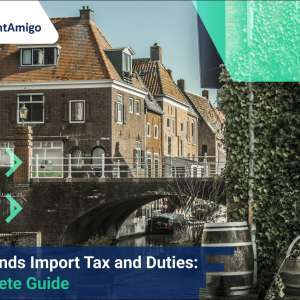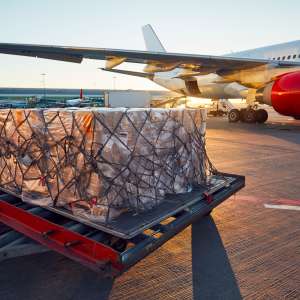Indonesian Customs Guide: Navigating Import Duties and Taxes
Latest update on 21 June, 2024 by Caspian Ng– Marketing Analyst at FreightAmigo
Navigating the complexities of indonesian customs, particularly for import duties and taxes, is a crucial skill for businesses and individuals aiming to engage in international trade with Indonesia. Given the significant role of these regulations within the global trade ecosystem, understanding the tax system in Indonesia, including the Indonesia import tax, is fundamental for ensuring compliance and fostering successful commercial relationships. The ever-evolving nature of import regulations in Indonesia underscores the importance of staying informed about the latest policies to avoid unnecessary costs and legal issues.
This article delves into the intricacies of Indonesia customs, providing a comprehensive guide to the types of taxes on imported goods, strategies for reducing import costs, and the procedure for paying import duties and taxes. By exploring the foundation of the tax system in Indonesia and offering practical advice for navigating these waters, the article aims to demystify the process and empower readers with the knowledge needed to efficiently manage their import activities. The goal is to facilitate a smoother, more predictable importing experience by equipping readers with insights into the import regulations Indonesia has in place, thus enabling them to make informed decisions and optimize their operations.
Want To Compare The Best Express, Air Freight, Sea Freight, Rail Freight & Trucking Rates So As To Have Better Control On Cost?
Understanding Import Duties in Indonesia
Indonesia’s import duty structure is designed to regulate the flow of goods into the country, ensuring that local industries are competitive and that imports meet specific standards. The Most-Favored-Nation (MFN) applied tariff rate in Indonesia was 8.1 percent as of 2021, with agricultural products slightly higher at 8.7 percent and non-agricultural products at 8.0 percent.
Definition of Import Duties
Import duties are taxes imposed by the government on goods brought into the country. In Indonesia, these duties vary widely depending on the type of goods and their origin. For instance, most non-agricultural goods have tariffs bound at 35.5 percent, but this can exceed or remain unbound for certain items like automobiles and some chemicals.
Categories of Import Duties
There are several categories of import duties in Indonesia:
- Standard Import Duties: Applied to general goods and determined by the Harmonized System (HS) code.
- Preferential Duties: Lower rates applied to goods from countries with which Indonesia has trade agreements.
- Consignment Duties: Special rates for imported consumer goods under a certain value, significantly lowered by the Minister of Finance Regulation 199/2019.
How Import Duties are Calculated
To calculate import duties, one must identify the HS code of the goods, which categorizes them for tax purposes. The duty is then calculated on the Cost, Insurance, and Freight (CIF) value of the goods. For example, if a product falls under a specific HS code with a duty rate of 10%, and the CIF value is determined, the import duty is simply 10% of the CIF value. This system ensures that duties are applied uniformly and transparently across different types of imports.
Types of Taxes on Imported Goods
Value Added Tax (VAT)
In Indonesia, VAT is applicable on services and the transfer of taxable goods, with businesses required to register for VAT upon reaching an annual revenue threshold of 4.8 billion rupiah. The standard VAT rate is set at 11%, increasing to 12% by 2025. Notably, exports of tangible and intangible goods, as well as services, are taxed at a rate of zero percent. Specific imports can also be exempt from VAT, including those into free trade zones or those financed by foreign aid.
Luxury Goods Tax (LGT)
The Luxury Goods Tax (LGT) in Indonesia varies from 10% to 200% and is imposed on items such as luxury residences and vehicles. This tax targets high-value goods predominantly purchased by high-income earners, aiming to expand the tax base. The LGT rates and definitions are set to be updated with new legislation anticipated to commence in 2023.
Income Tax (PPh)
Income tax on imports, known as PPh, varies depending on the product and whether an Indonesian Import Identification number (API) or a tax ID number is provided. Rates range from 7.5% to 15%. Additionally, PPh 22 applies to certain imported goods with rates depending on the nature of the goods, ranging from 0.5% for specific commodities to 10% for certain end customer goods.
Tips for Reducing Import Costs
Reducing import costs is crucial for enhancing profitability and competitiveness in international trade. Here are key strategies to consider:
Finding Trusted Suppliers
Establishing relationships with reliable suppliers is fundamental. Attending trade shows and using online directories like Alibaba and Global Sources can connect businesses with legitimate suppliers. Verifying credentials and requesting samples are essential steps to ensure product quality and supplier reliability. Additionally, visiting the supplier’s facilities can provide insights into their operations and product standards.
Leveraging Free Trade Agreements
Indonesia’s participation in Free Trade Agreements (FTAs), such as the ASEAN Free Trade Area and the Regional Comprehensive Economic Partnership, offers significant advantages. These agreements can reduce or eliminate tariffs and streamline customs procedures, making it more cost-effective to import goods. Businesses should stay informed about these agreements and consider how they can be utilized to reduce import costs.
Using Customs Brokers for Efficient Clearance
Engaging with experienced customs brokers can facilitate the customs clearance process. They are knowledgeable about local regulations and can manage necessary documentation and compliance issues efficiently. This not only speeds up the import process but also helps in avoiding costly delays and fines.
By implementing these strategies, businesses can effectively reduce their import costs and improve their operations in the Indonesian market.
Procedure for Paying Import Duties and Taxes
Documentation Required
To ensure smooth processing of imports, the following documents are essential: Invoice, Commercial Invoice, Certificate of Origin, Bill of Lading, Packing List, Insurance Certificate, and the Harmonized System (HS) Code. Additionally, a Material Safety Data Sheet (MSDS) may be necessary for specific items. Importers must declare their goods electronically to Indonesian customs, providing detailed and accurate information about the imported goods.
Payment Methods
Import duties and taxes are typically paid at the bank by the importer. For convenience, under services like DHL Express, the sender with a MyDHL+ account can opt to pay these fees on behalf of the receiver. The fees, along with a small administration fee, are then invoiced back to the sender. This method can expedite the customs clearance process.
Compliance and Reporting
After payment, importers must submit proof of payment and necessary documents such as the Notification of Imported Goods (PIB), Tax ID (NPWP), and a Tax and Custom Deposit Letter to the customs office. Once customs clearance is achieved, the importer receives a Customs Clearance Approval Certificate (SPPB), allowing for the release of goods. Importers are advised to keep records of all customs-related transactions for auditing purposes and ensure compliance with all regulations to avoid legal issues.
Conclusion
Through this article, we have traversed the intricacies of navigating Indonesian customs, focusing on import duties and taxes that are pivotal for businesses and individuals partaking in international trade with Indonesia. By highlighting the fundamental aspects such as the structure of import duties, various tax categories, and strategies to reduce import costs, the content aims to empower readers with essential knowledge for compliance and efficient import practice. This insight into the procedure for paying import duties and taxes further enables stakeholders to streamline their operations, ensuring a smoother engagement with the Indonesian market.
The significance of understanding and staying abreast of these regulations cannot be overstated, as they are integral to fostering successful commercial relationships and optimizing operational efficiency in Indonesia’s vibrant trade ecosystem. For those seeking to delve deeper into the nuances of Indonesia’s import duties and taxes, further information and guidance can be found by visiting FreightAmigo for inquiries. Embracing this knowledge will not only mitigate potential legal and financial hurdles but also open avenues for transformative business growth within the dynamic landscape of international trade with Indonesia.
If you want to learn more about Indonesian import duties and taxes, Please go to the FreightAmigo page for inquiries.
Read more:
Exploring Indonesia’s Exports and Imports
Comprehensive Guide to Prohibited Items importing to Indonesia
If you have any inquiries on logistics / supply chain, feel free to contact FreightAmigo now:
Chat with us online | Hotline: +852 28121686 | WhatsApp: +852 27467829










































